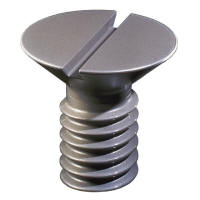Metals. No ferrous metals. Copper, Silver ..
.jpg)
Metals on earth
Apart from ferrous metals, there are other metals which are used alot in technological appliances. It is worth highlighting the use of (among others) copper, bronze, aluminium etc
Pure non-ferrous products.
Aluminium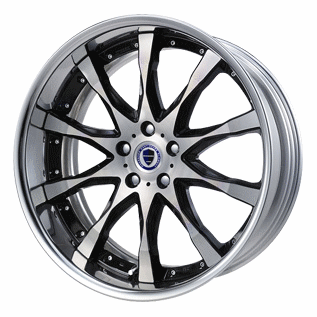
Bright white colour, light, oxidation resistant, very plentiful, poor mechanical properties.
Containers, metalwork, high tension cables and things where weight is a critical parameter (very important) e.g. wheel hubs. (see picture)
equipment.
Copper
Reddish colour, excellent thermal and electric conductor, corrosion resistant, weldable, ductile and malleable.
It is used to make electrical conductors and central heating
Tin
It has a very low fusion point and is a bluey-white colour, shiny and very soft. It is very useful for welding pipes and copper cables.
It also covers steel to form tin.
Zinc 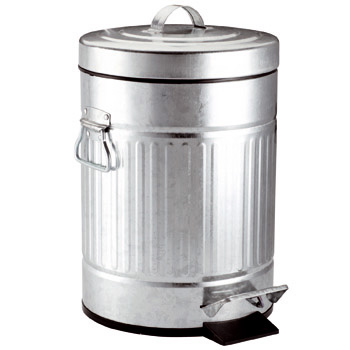
White colour, very corrosion and oxidation resistant, with copper it forms brass. It is used to cover other metals and alloys to protect them (galvanised)
Non ferrous products – alloys
Alloys are made of two or more elements, examples are bronze and brass. 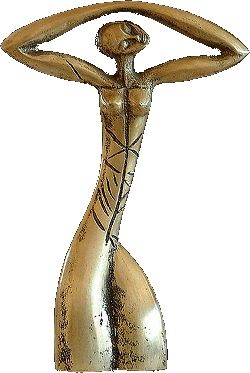
Bronze is made of copper and tin and it is used to make figures.
Final treatments
Molding: This is a technique that allows us to obtain metal pieces in complicated or unusual shapes. It consists of filling a mold with a molten metal or alloy so that when the metal cools it adopts the desired form.
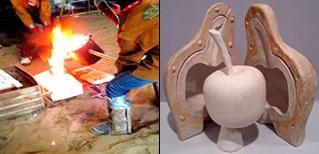
 Strain or stamping: This consists of straining the metals (hot and cold) by a mechanical action until you obtain the desired form.
Strain or stamping: This consists of straining the metals (hot and cold) by a mechanical action until you obtain the desired form.
On the right you can see one of the oldest processes – forging
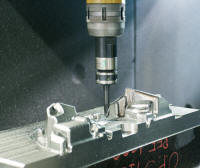 Mechanised: This consists of giving form to the metal by cutting out a piece from a larger piece. Examples of mechanical operations are cutting with a saw, drilling or milling.
Mechanised: This consists of giving form to the metal by cutting out a piece from a larger piece. Examples of mechanical operations are cutting with a saw, drilling or milling.
Metals can form the following types of unions:
Permanent: destroying the union means destroying the materials that form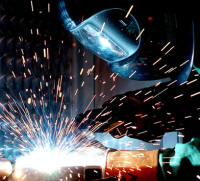 the union. Examples are welding and rivets.
the union. Examples are welding and rivets.
Detachable: it is possible to end the union and recuperate the starting materials intact. It is used in mobile elements and threaded joints like hinges.
Tools
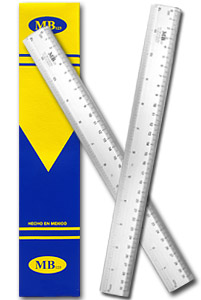
Some of the most common tools are:
1. Rulers. They can be made of metal or wood. It is used to measure things. In England rulers normally measure in inches, which is the same as 2.54 centimetres.

Hammers are used to hit nails in, shape things or deform them. It is made of a handle (normally made of wood) and a head (of iron)
You must be careful when you use one because it is easy to have an accident with them which could hurt either you or your companion.
The bench clamp is used to hold pieces (of metal or of other materials) so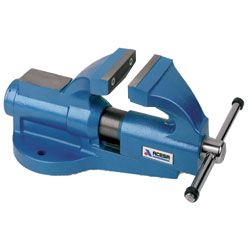 that we can work with them more easily. It holds the material firmly and we must be careful because the ‘mouth’ of the clamp can leave a mark on the piece if it is soft.
that we can work with them more easily. It holds the material firmly and we must be careful because the ‘mouth’ of the clamp can leave a mark on the piece if it is soft.
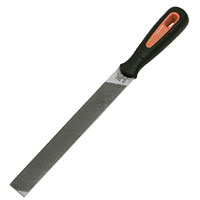 Files are used to remove small bits of metal or wood and create smoother surfaces.
Files are used to remove small bits of metal or wood and create smoother surfaces.
There are many types of files which are defined based on what the grooves are like.
There are many types of screwdriver, some are longer than others, some are designed for use with certain screws and others for use with other screws but all are used as screwdrivers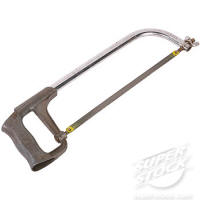
Saws: There are saws for wood and saws for metal, it depends on the teeth (some are larger than others).
Wood saw tend to have an open arc and metal saws tend to have a closed arc (see picture)
Screw: Image on the left

